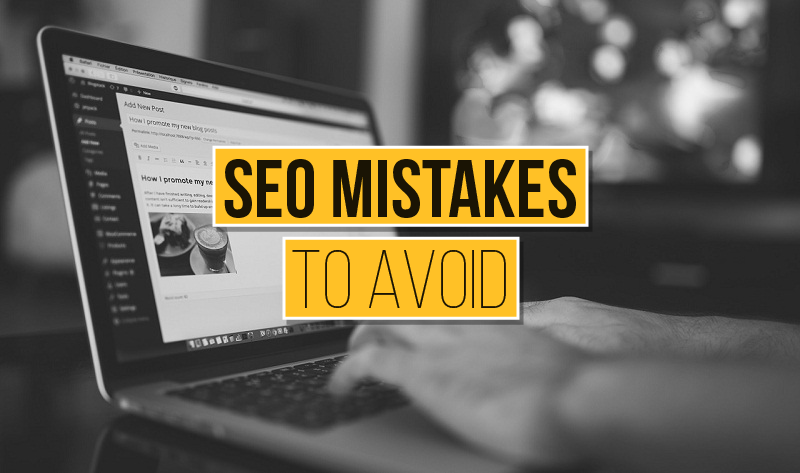8 Common Mistakes That SEO Managers Make in On-Page Optimisation
If you’re putting time and effort into your website’s SEO but not seeing the results you expect, you’re not alone. For higher search engine rankings and driving organic traffic, on-page is the key. However, even seasoned SEO professionals like Maui SEO can sometimes fall into common pitfalls that drags down all their efforts.
Common Mistakes That SEO Managers Make in On-Page Optimisation
So, let’s talk about eight frequent mistakes SEOs make.
1. Neglecting Keyword Research
Effective on-page optimisation starts with thorough yet regular keyword research. Many SEOs make the mistake of skipping this step or relying on outdated keyword lists. According to Ahrefs, around 90.63% of all web pages get no organic search traffic at all, often due to poor keyword targeting.
Use tools like Ahrefs, SEMrush, or Google’s Keyword Planner to identify relevant and high-volume keywords and real data. Regularly update your keyword strategy to stay aligned with changing search trends and user intent.
Look beyond the obvious keywords. Consider long-tail keywords (phrases with more than three words) and local keywords if you’re targeting a specific region.
Keyword stuffing is another risky practice that we do. Gone are the days when you could cram your page full of keywords and expect to rank. Search engines are smarter now. Keyword stuffing makes your content unreadable and can even get you penalised.
Aim for a natural keyword density. Focus on creating high-quality content that flows well and incorporates keywords strategically.
2. Overlooking Meta Tags
Meta titles and descriptions play a significant role in attracting clicks from SERPs. It can increase CTR by up to 5.8%.
However, many SEOs either neglect to optimise these tags or stuff them with keywords, resulting in poor click-through rates (CTR).
Write compelling and relevant meta titles and descriptions for each page. Ensure they accurately reflect the content and include primary keywords naturally. Using free tools like the Attrock Meta Tag analyzer can help verify keep your title tags are descriptive, accurate, and ideally under 60 characters. Your meta description should summarise your page in an engaging way (around 150-160 characters).
Sometimes we also forget about Header Tags (H1, H2, H3, etc.). It helps structure your content, making it easier for both users and search engines to understand. Your main title should be an H1 tag. Use H2 tags for subheadings and H3 tags for further subdivisions.
3. Ignoring Mobile Optimisation
With mobile devices accounting for over 50% of global internet traffic, ignoring mobile optimisation can be a costly mistake. Google’s Mobile-First Index means that the mobile version of your site is considered the primary version for ranking purposes. 57% of users say they wouldn’t recommend a business with a poorly designed mobile site.
Implement responsive design to ensure your website functions seamlessly across all devices and screen sizes. Use Google’s Mobile-Friendly Test tool to identify and fix any mobile usability issues.
4. Poor Internal Linking Structure
Internal links help search engines understand the structure of your website and the relationship between different pages. However, many SEOs fail to create a logical internal linking strategy, leading to poor crawlability and user experience.
Use internal links to guide users to relevant content and distribute link equity throughout your website. Ensure that each page is no more than three clicks away from the homepage.
5. Slow Page Load Speed
Page load speed is a critical factor in both user experience and SEO. A study by Google found that 53% of mobile users abandon a page that takes longer than three seconds to load. Additionally, page speed is a direct ranking factor in Google’s algorithm.
Optimise images, leverage browser caching and minimise JavaScript (JS) and CSS files to enhance the loading speed of the page. Use tools like Google PageSpeed Insights and GTmetrix to identify and fix speed issues.
6. Thin or Duplicate Content
Thin content offers little value to users and can be detrimental to your SEO efforts. Duplicate content, on the other hand, confuses search engines and can lead to indexing issues. According to Moz, around 29% of websites have duplicate content issues.
Search engines want to show users the best possible results. If your content is dull, outdated, or doesn’t answer a user’s query, it won’t rank well.
Create engaging, high-quality, and original or fresh content that provides value to your audience. Use tools like Copyscape to identify and eliminate duplicate content on your site. Consider different formats like blog posts, how-to guides, or videos.
7. Ignoring User Experience (UX)
User experience is increasingly becoming a crucial ranking factor. Factors such as bounce rate, time on site, and page views per session are indicators of good UX. It could increase your website’s conversion rate by up to 200%.
Focus on creating a seamless and enjoyable user experience. Ensure your website is easy to use, accessible, visually appealing, and provides “helpful” content that meets the needs of your audience.
Use the best imagery, graphics, and visuals with descriptive file names and alt texts. You can also compress them for faster loading.
8. Not Monitoring and Analysing Performance
Last but not the least. Without tracking performance, it’s impossible to know what’s working and what needs improvement.
Use tools like Google Analytics, Search Console, and third-party SEO tools to monitor key metrics such as organic traffic, bounce rate, and keyword rankings to identify areas for improvement.
Conclusion
On-page optimisation is a critical aspect of any successful SEO strategy. By avoiding these 8 common mistakes, you can achieve higher rankings and more organic traffic.
Of course, sometimes it’s helpful to have a bit of expert guidance. If you’re based in Essex, London, or anywhere in the country, Leap Digital can help boost your online business. This is the most reputed digital marketing agency which specialises in web design and SEO. Their innovative strategies helped hundreds of businesses and brands to get real and authentic results.




